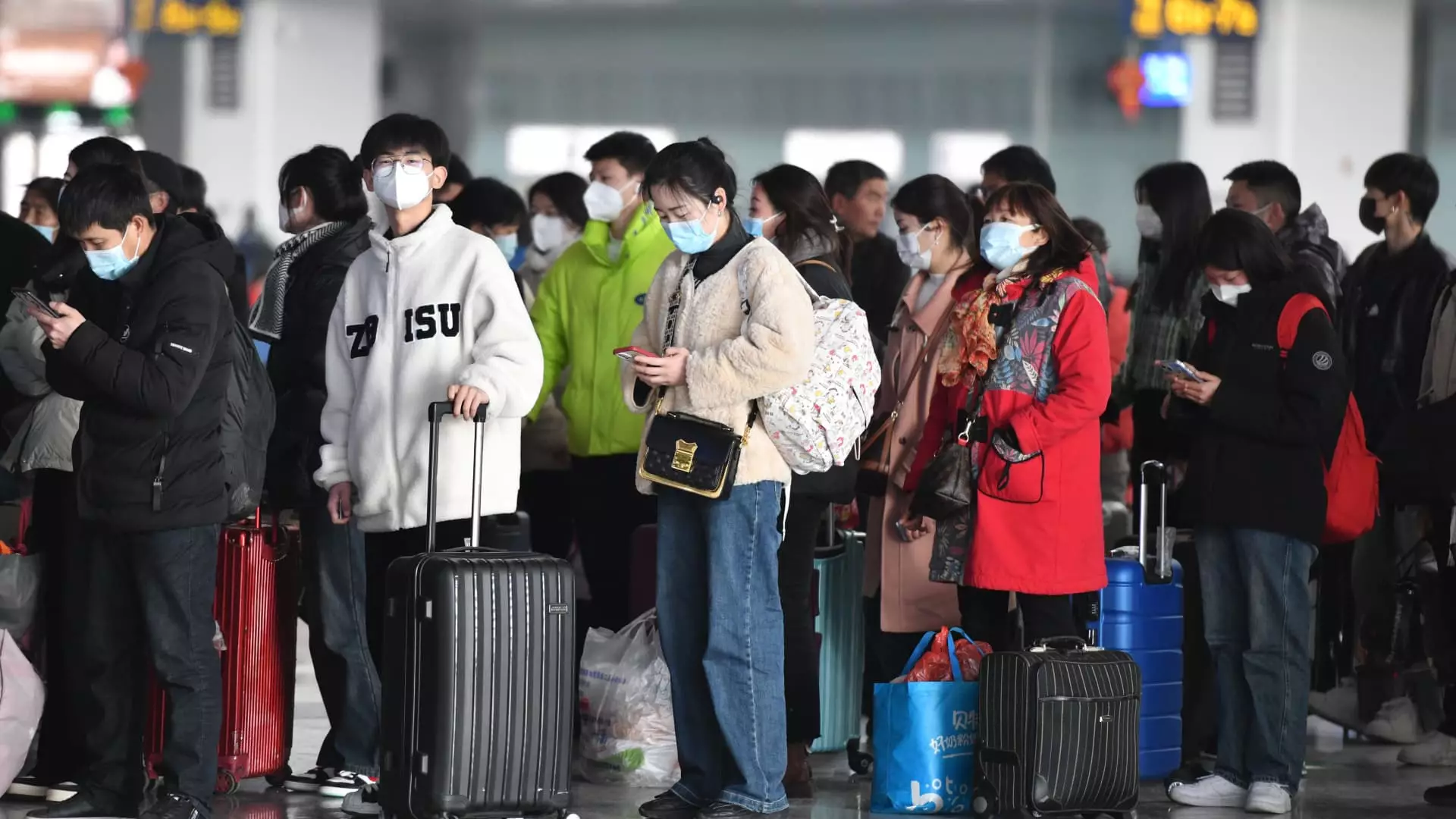In recent times, there has been a noticeable shift among Chinese travelers towards taking more last-minute trips. This change in behavior is a direct result of increased caution with spending, driven by a lackluster economic recovery in the country. According to Anthony Caputano, president and CEO of Marriott International, there is a “real crisis of consumer confidence” in China, leading to a change in booking habits.
Uncertainty and Caution
The trend of booking hotels as late as three days in advance is at an all-time high among Chinese consumers. This shorter booking window, significantly lower than the global average of around 20 days, reflects the uncertainty and caution prevailing among consumers. Economists at Oxford Economics have noted that modern travelers prefer spontaneity in their travel plans, opting to take advantage of last-minute deals.
While last-minute bookings may benefit consumers, they pose challenges for businesses in predicting and preparing for demand. Patrick Body at the Cheung Kong Graduate School of Business highlighted the difficulty businesses face, particularly in a slow economic recovery like that of China. The current economic climate has led Chinese consumers to become more frugal across various sectors, including travel.
The protracted property crisis and high unemployment rates in China have impacted consumer sentiment regarding incomes and consumption. Despite the desire to go on holiday, there is a prevailing sense of caution. The economic challenges have resulted in shorter booking windows, a trend that has been consistent in the Chinese market.
Industry Responses
Marriott International and other industry players have been forced to reassess their growth forecasts and pricing strategies due to the weak demand in China. Domestic travel booking agencies like Trip.com have reported declining average rates for hotels and flights, reflecting the challenging market conditions. The short booking windows have added to the uncertainty in the industry, making it difficult to predict future demand accurately.
Local Economic Impact
While overall travel spending remains below pre-pandemic levels, there has been a shift towards short-haul trips to smaller cities or counties. This trend is expected to continue and could potentially boost local economies. The upcoming Golden Week in early October is anticipated to see increased travel demand, surpassing levels seen in 2019.
Future Outlook
As businesses and travelers navigate the changing landscape, there remains limited visibility for the future. Trip.com CFO Xiaofan Wang highlighted the challenges posed by the short booking windows, making it challenging to forecast booking activities accurately. However, there is optimism for a pickup in bookings post the National Day holiday, leveraging on a lower base from the same period last year.
The evolving behavior of Chinese travelers reflects a broader trend of increased caution with spending and a preference for last-minute deals. Businesses in the travel industry must adapt to these changing patterns and uncertainties to remain competitive in the market.

